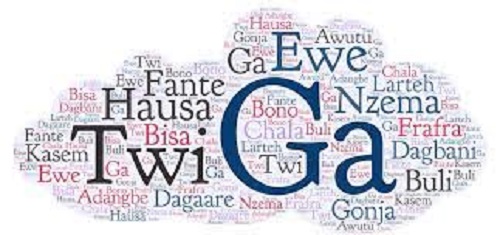
Let’s not bastardise our languages, identity
This year also Ghana will join other countries across the globe to celebrate International Mother Language Day today, February 21.
The cycle continues!
Advertisement
How many Ghanaian languages do you speak and/or write confidently or fluently? It is unfortunate that our own languages have little prestige.
A multilingual country such as Ghana ought to develop its indigenous languages, to safeguard its rich cultural heritage and linguistic diversity.
If we fail to do this, we shall lose our battle against foreign culture influence completely.
Growing up, at school in my village, it was fun. My class always recited interesting English rhymes – Peter Piper, I See the moon, Rain Rain Go Away, etc., until we were promoted.
My new class was less fun. We spent most of our time reading the English alphabet or primers, tracing and counting numerals.
Our new class teacher frequently instructed us to speak only English or remain quiet, sometimes pointing to the red bold-faced inscription (“Don’t Speak Vernacular”) above the blackboard.
We were usually punished for speaking Akan or Esahie without her permission.
With time, my class became convinced that we had no right to speak our mother tongue on the school premises.
This was the strictest rule in my school. Punishment for culprits took various forms, and included supply of items such as brooms, board dusters and canes to the school.
But a particular punishment killed my interest in our indigenous languages for several years — empty milk cans strung on ropes were hung around my neck!
While I sat in class that fateful day, my whole body squirmed. My excuse, that I did not know the English equivalent of ‘corncob,’ was unconvincing. I was scorned by my schoolmates, even my own friends.
Later that academic year, similar chains were made with snail shells as a more severe punishment.
This did real magic for the school authorities. Even though many students became less vocal, a few students tried to speak only English.
My friends and I rarely asked or answered questions during lessons.
No change
Nothing much has changed till date. Our educational institutions are still fertile grounds where learners develop negative ideologies about our indigenous languages.
In fact, only English is spoken in some homes since parents cannot speak their mother tongues or simply attach so much prestige to English.
While we search for causes of our ‘rotting’ youth, let us remember that our indigenous languages enjoy minimal prestige in our learning institutions and in some homes.
We are rapidly losing our great wealth of traditional knowledge and wisdom to this.
It is worrying that Ga, the language of the indigenes of Ghana’s capital, remains underdeveloped.
A foreigner who visits the country is unlikely to find Ga inscriptions in the city. Not many place names mirror the identity of the indigenes.
Rapid bollywoodisation, hollywoodisation and nollywoodisation are gradually displacing local TV drama series in Ga just like other Ghanaian languages.
To hear impeccable Ga in the entire region, one may have to visit the oldest Ga communities.
Language
It is unfortunate that several people living in Accra know little about the indigenes and cannot speak their language.
Learning a community’s language does not make the language group superior to you. And it certainly will not harm your own culture.
Instead, it is a window to understanding a new world. Our languages represent our rich heritage and diversity as a people, so we must not lose them to any forces (including globalisation).
Otherwise, we shall continue to channel our energy into explaining our values to a changing world of ‘wayward youth.’ Culture is lived.
The writer is a doctoral student, University of Hong Kong, E-mail: [email protected]




